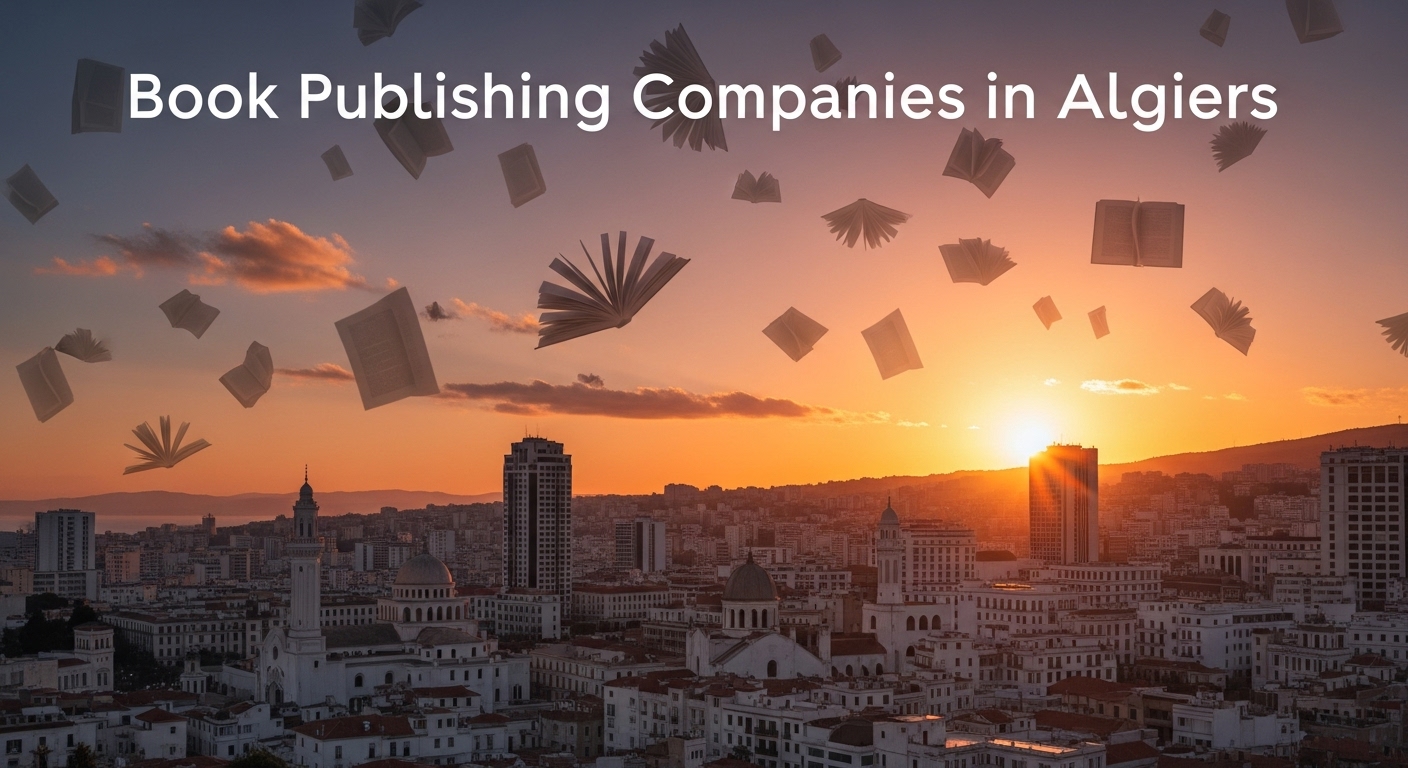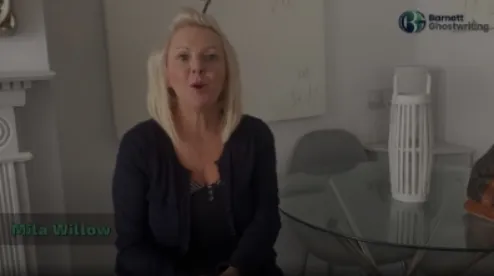
Algiers has a long, layered literary history — from colonial-era printing houses to the resilient independent presses that emerged after the civil upheavals of the 1990s. In 2025 the city remains the cultural heartbeat of Algeria’s book world: it hosts national and independent houses, academic presses, and creative imprints that publish in Arabic, French and occasionally Tamazight and English.
1. Barnett Ghostwriting
Barnett Ghostwriting is an international ghostwriting and publishing services firm that offers manuscript development, ghostwriting, editorial packages, cover and interior design, and self-publishing support. While not a traditional Algerian house, Barnett is often used by authors in the MENA region seeking professional editorial and production services in English.
- Specialties: Ghostwritten memoirs, business books, genre fiction, and professional non-fiction.
- Author services: Developmental editing, ghostwriting, design, formatting, and self-publishing distribution assistance.
- Best fit for: Authors writing in English or bilingual projects who want turnkey production support.
- Practical note: Works remotely and helps authors seeking international distribution or English-language publishing.
2. ENAG Éditions
ENAG is a prominent state-affiliated publisher with strong ties to Algeria’s educational and cultural publishing. It specializes in academic, reference, and textbook publishing, and distributes widely through schools and universities.
- Specialties: Textbooks, academic monographs, cultural studies, reference works.
- Strengths: Institutional credibility and broad domestic distribution.
- Best fit for: Academics, researchers, and textbook authors.
- Practical note: Submission processes follow strict institutional guidelines.
3. Barzakh Éditions
Founded in the early 2000s, Barzakh Éditions has been a key player in reviving Algerian literature. It publishes fiction, poetry, essays, and criticism, and is recognized for giving new voices a platform.
- Specialties: Contemporary fiction, poetry, essays, and cultural works.
- Strengths: Literary credibility and international recognition.
- Best fit for: Emerging and mid-career writers seeking literary exposure.
- Practical note: Participates in translation projects and regional book festivals.
4. Casbah Éditions
Casbah Éditions is a respected independent house with a strong focus on Algerian heritage. It publishes history, literature, photography, and art-related works.
- Specialties: History, cultural studies, fiction, and illustrated works.
- Strengths: Strong editorial identity and cultural preservation.
- Best fit for: Historians, cultural authors, and visual artists.
- Practical note: Often collaborates with museums and cultural centers.
5. Independent Niche Publishers
Several smaller presses in Algiers dedicate themselves to children’s literature, short stories, and experimental writing. While smaller in scale, they are important cultural contributors.
- Specialties: Children’s books, essays, short fiction.
- Strengths: Creative risk-taking and close author-editor collaboration.
- Best fit for: Authors seeking to experiment with new formats.
- Practical note: Limited runs but high community and festival engagement.
6. Éditions Koukou
Éditions Koukou and similar boutique publishers in Algiers focus on niche topics such as social sciences, regional studies, and children’s writing.
- Specialties: Social studies, poetry, children’s books.
- Strengths: Subject expertise and targeted audiences.
- Best fit for: Authors of specialized or thematic works.
- Practical note: Often publish small print runs for libraries and cultural institutions.
7. University Presses in Algiers
University-affiliated presses remain central to academic publishing in Algeria. They handle theses, research-based books, and educational works.
- Specialties: Academic research, textbooks, scholarly monographs.
- Strengths: Peer-reviewed credibility and curricular use.
- Best fit for: Graduate students and academics.
- Practical note: Bureaucratic processes can extend publishing timelines.
8. Translation and Cultural Project Publishers
A handful of publishing associations in Algiers prioritize translation and cultural exchange projects. These presses collaborate with foreign institutes to create bilingual or translated editions.
- Specialties: Bilingual anthologies, translations, cultural exchange.
- Strengths: Access to international networks and translation funding.
- Best fit for: Authors aiming for cross-language exposure.
- Practical note: Often dependent on grants and cultural programs.
9. Printing and Distribution Networks
Beyond publishers themselves, Algiers’ ecosystem includes printers, distributors, and booksellers. Together they form the infrastructure that supports the national literary market.
- Specialties: Production and logistics.
- Strengths: Strong presence at major fairs, especially the Algiers International Book Fair.
- Best fit for: Authors looking to maximize reach after publication.
- Practical note: Book fairs are a crucial venue for promotion.
10. Cultural and Festival-Linked Publishing
Finally, Algiers is home to publishers linked with cultural centers and literary festivals. These outlets often produce anthologies, event-based collections, and cultural documentation.
- Specialties: Festival anthologies, cultural collections, poetry.
- Strengths: High visibility through cultural events.
- Best fit for: Writers participating in festivals or cultural collaborations.
- Practical note: Works are often limited edition but highly visible during events.
Printing, Distribution and Book Fair Infrastructure
Algiers’ printing and distribution infrastructure is a mix of state-run facilities, private printers and independent booksellers. The Algiers International Book Fair is a key annual event where publishers, booksellers and authors connect, and it remains an important promotional platform — even as political sensitivities shape participation and programming.
- Practical pointers for authors:
- Timing: Plan releases around the city’s major fairs and academic calendars.
- Print runs: Discuss regional demand with your publisher; smaller initial runs with on-demand reprints are common.
- Promotion: Local radio, university talks, and cultural center readings are effective low-cost strategies.
- Context note: The publishing environment can be affected by political and cultural sensitivities, so authors and publishers often balance creative ambition with pragmatic distribution and publicity plans.
How to Choose the Right Publisher in Algiers
- Match your genre and language: Choose a house that publishes in your manuscript’s language and genre — literary presses differ from academic or children’s imprints in editorial approach and distribution.
- Assess editorial and production care: Review sample titles (if possible) to judge editing quality, book design and production values.
- Check distribution reach: For textbooks and academic work, institutional reach matters; for literary titles, festival presence and cultural channels matter more.
- Understand contractual terms: Clarify rights, royalties, print runs, and reprint clauses. When in doubt, consult a publishing lawyer or experienced author.
- Consider translation strategies: If you want a francophone or international audience, prioritize presses with translation partnerships or good relations with cultural institutes.
Short FAQs
Q: Are there English-language publishers in Algiers?
A: English-language book publishing is limited; authors usually work with francophone or Arabic publishers and seek translation partners or international houses for English editions.
Q: What’s the quickest route to publishing in Algiers?
A: For academic authors, university presses can be quick; for trade books, independent houses often offer the most responsive editorial paths, though timelines vary.
Q: How important are literary festivals and the Algiers Book Fair?
A: Very important — they’re prime venues for visibility, rights discussions, and connecting with translators and booksellers.
Closing thoughts
Algiers in 2025 remains an important, sometimes challenging, but creatively rich place to publish. From established state and university presses that ensure academic visibility to independent houses like Barzakh and Casbah that nurture literary life, the city offers diverse options for authors who are thoughtful about language, audience and production. If you’re an author preparing a manuscript, start by identifying your target readership, then approach the presses above with a clear proposal and realistic expectations about print runs and promotion. For projects that aim at international or English-language markets, combining a local publisher’s cultural expertise with a services partner (like Barnett for manuscript development and English production) can be an effective hybrid route.





